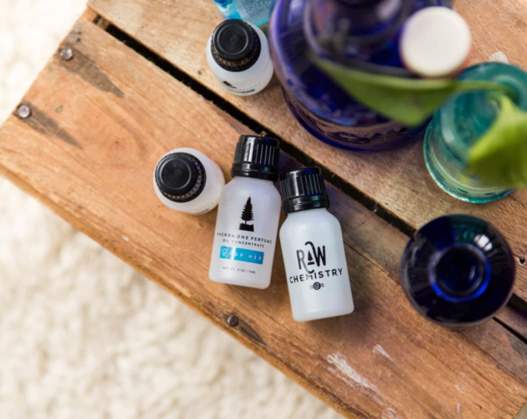
Can You Use Vitamin C for Acne Scars?
Most people battle with acne in their teenage years, and many people for a time past that. People with severe cases of acne can be left with acne scars. People who’ve suffered from acne and have been left with acne scars have probably used different products to try and get rid of their scars. However, it’s no easy task, especially when you buy products that don’t contain the right ingredients. When it comes to suffering from acne scars, Vitamin C Serum can be very powerful for healing your skin. Eating a well-balanced diet is the best way to get the vitamins that your body desires; however, there are times it can be pretty hard getting all the nutrients your body desires to help restore your skin from diet alone--and it never hurts to get a little extra boosts from supplements, serums, or moisturizers.
Can You Use Vitamin C for Acne Scars?
So, can you use Vitamin C for acne scars? Vitamin C helps reduce the inflammation on your skin, helping clear acne on your skin, creating the formation of collagen that fleshes the scars and removes the post acne spots for clearer skin. There are several benefits of using Revival besides helping remove acne scars. Here are the main benefits of Vitamin C in skin products like our Vitamin C enriched, natural face moisturizer:
Vitamin C Help Protect the Skin
Our skins get exposed to various free radicals from the environment, pollution and sun exposure. These free radicals can be hard to avoid and can cause damage to our skins. As such, the Vitamin C Serum comes in handy in protecting our skin and not just for those with acne but, for everyone in general. However, it is more important for those with acne scars to fully protect themselves from the free radicals by using the Vitamin C Serum as it will help repair and heal your skin. This it does by neutralizing the free radicals and preventing further damage to the sebum.
Vitamin C Can Reduce Inflammation
Several studies have shown that use of topical Vitamin C – specifically the use of the sodium ascorbic phosphate (SAP), a stable Vitamin C source – give one of the best results when it comes to the treatment of acne on your skin. In just eight weeks, one study showed that the use of 5% SAP in treating acne improved by an average of 49%. Moreover, adding about 0.2% of retinol to the 5% SAP improved acne treatment by 63% in just eight weeks. As such, to be able to maximize the use of SAP and get better results, it’s advisable to give it an additional retinol.
It Can Help in the Formation of Collagen
The roundness or plumpness of our skin is made possible by collagen. Revival, our vitamin C moisturizer, not only helps in the production of collagen but helps improve the quality of collagen produced by our body which helps in filling the can spot scars. Don't take our word for it...the experts at Oregon State University agree.
Vitamin C Serum Reduces Hyperpigmentation and Acne Scars
Hyperpigmentation is a condition where some parts of our skin become darker than others. This occurs when there is an overproduction of melanin in certain areas of our skin. Even though it’s harmless, it can be quite irritating to have different colored patches on your skin. Vitamin C helps to normalize your skin tone by lightening your skins pigmentation. It also increases your skin’s natural healing process by improving the inflammation on the red spots.
Vitamin C Repairs Damaged Cells
Vitamin C is a powerful antioxidant that plays a vital role in the repair of damaged cells in our body. It helps reduce the damage to the cells in the skin are that is greatly affected. The revitalization of the skin cells gives us a healthy look.
Vitamin C Serum is the best sure way to help your skin heal from acne scars. However, it’s important to note that the healing will not just happen in one day but will take a bit of time. This, therefore, requires a bit of patience on your end. You can opt to buy readymade products that contain the Vitamin C Serum or make one yourself at home with the right amounts of ingredient needed. For a much better result, ensure that you are consistent in the use of your Vitamin C Serum for maximum results. You can also use Vitamin C supplements to help boost the use of the Vitamin C Serum. You can do this by taking smaller doses at regular intervals as compared to taking one large dose. It’s highly recommended that you use the Vitamin C Serum at night before going to bed as compared to its use during the day. The rays from the sun break down the product making it less effective on acne scar healing on your skin.
Choosing a Vitamin C Product to Help Heal Your Acne Scars

If you're looking to help heal your acne scars, then you've come to the right place. Check out what makes our product so great:
Revival by RawChemistry uses the purest of ingredients to cleanse and provide nourishment to your facial skin. Our Oregon based laboratory has created this formula specifically to provide your skin with the tools to keep wrinkles at bay, cleanse your face of foreign debris and dirt and to keep your youthful glow.
Revival works, and it works well because it is aloe vera based with the following chemicals as its key ingredients:
- Vitamin A — Encourages healthy skin cell production
- Vitamin B5 — Moisturizes, soothes, heals and regenerates skin
- Vitamin C & E — Prevents damage caused by sunlight and has basic antioxidant properties
- Organic Jojoba Oil — Rehydrates skin to help ward off dermatitis
- Avocado Oil — Keeps skin silky smooth and soft
- Rosehip Seed Oil — Regenerates skin cells and to repair damaged skin tissue

